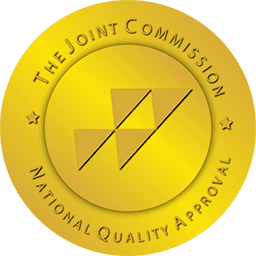Introduction to Personalized Addiction Treatment Approaches
Every addiction story is unique, so it makes sense that the path to recovery should be tailored to fit the individual. Personalized addiction treatment is about crafting a recovery plan that takes into account a person’s specific needs, history, and circumstances. This approach moves away from the one-size-fits-all program and looks closely at the underlying causes of addiction, whether they be psychological, environmental, or biological. By doing so, treatment can address more than just the symptoms — it targets the root of the problem, increasing the chances of long-lasting sobriety. Therapies are chosen based on what will work best for the individual, considering their preferences and what has or hasn’t worked in the past. For some, that might mean medication-assisted treatment alongside counseling, for others, holistic methods might take the lead. The goal is always the same: to pave a road to recovery that is as unique as the person walking it.


Understanding Addiction: A Complex Disease
Addiction isn’t just a bad habit; it’s a complex disease that changes the brain. When someone’s trapped in the cycle of addiction, their brain craves the substance or behavior much like it craves food or water. The brain adjusts to the presence of the substance, making it hard to break free without help. But remember, addiction isn’t a sign of weakness or a moral failing. It’s a medical condition that requires support and treatment. Effective recovery plans account for this complexity and are tailored to fit each individual like a key fits a lock, targeting the addiction’s specific mechanics in each person’s brain and life.
Why One-Size-Fits-All Doesn’t Work for Addiction Recovery
Every individual is unique, so their journey to overcome addiction requires a personalized touch—not a one-size-fits-all solution. Cookie-cutter programs don’t account for personal history, specific substances abused, or the unique psychological and physical needs of each person. Some may respond well to group therapy, while others need a more private, one-on-one approach to work through their issues. Co-occurring mental health conditions like depression or anxiety are common among those battling addiction and they demand tailored treatments as well. Plus, factors such as family support, employment status, and physical health vary for everyone, further underscoring the need for a customized recovery plan. Long story short, for addiction treatment to be truly effective, it’s got to be tailored to the individual.
The Assessment: First Step Towards Personalized Treatment
The journey to addiction recovery is deeply personal, and it kicks off with what’s known as the assessment. This is when professionals get to the heart of the matter—understanding you, the complexity of your addiction, and the beat of your life’s drum. Think of it as mapping the terrain before setting out on a hike. They’ll look at your history of substance use, mental health, medical conditions, and even your social and family ties. It’s all about building a clear picture so that treatment can be tailored just for you. The better the assessment, the sharper the plan. After all, addiction isn’t a one-size-fits-all challenge, and recovery shouldn’t be either. So, rolling up your sleeves to get into the nitty-gritty of your own story with a professional is the first stride towards a treatment that’s as unique as your fingerprint. No two paths are the same, and the assessment ensures your path to recovery is cut to fit just right.
Integrating Psychological Therapies: Tailoring the Therapeutic Process
Personalized treatment means shaping the recovery to fit the person, not just the addiction. To do this effectively, psychological therapies must be integrated and tailored to individual needs. Think of it as getting a suit adjusted to fit you perfectly — it just works better.
Cognitive-behavioral therapy, motivational interviewing, and family therapy are only a few methods therapists tweak for each person. They might zero in on harmful thought patterns, cheer on positive behavior changes, or patch up strained relationships. The goal is to find the mix that hits the mark for each individual.
In this tailored approach, a person’s cultural background, personal history, and the specifics of their addiction are all considered. This makes the therapy more relevant and powerful. By fitting the therapy to the person, recovery becomes not just a possibility, but a well-mapped path to reclaiming control.
Medication-Assisted Treatment (MAT): A Personalized Approach
Medication-Assisted Treatment, or MAT, is a tailored strategy in the journey to conquer addiction. Think of MAT as a personalized ally, not the sole hero but part of a team fighting against substance dependency. It combines medications designed to normalize brain chemistry, block the euphoric effects of alcohol and opioids, relieve physiological cravings, and treat withdrawal symptoms with counseling and behavioral therapies. This one-two punch offers a directed counterattack to the substance’s hold, shaped to fit the individual’s needs. For instance, someone struggling with opioid addiction might be prescribed methadone, buprenorphine, or naltrexone. People fighting alcohol dependence might receive disulfiram, acamprosate, or naltrexone. The right medication, dosage, and counseling approach depend on personal history, the severity of addiction, and specific recovery goals. MAT doesn’t serve as a universal solution but as a custom-fitted armor tailored to protect and empower the person on their road to recovery.
The Importance of Support Systems in Personalized Recovery Plans
Recovery from addiction isn’t a solo journey. It’s a road that demands reliable company and a solid support system. Your allies in this battle can range from family and friends to support groups and professional counselors. During personalized addiction recovery, the care you receive molds to fit your unique needs, but it’s this support that helps hold the shape. Imagine your support system as the scaffolding around the building you’re constructing – that is, the new sober life you’re working hard to achieve.
Family and friends bring love and encouragement, cementing your motivation to stay on track. They’re your personal cheer squad, ready to celebrate your victories, no matter how small. Professional counselors ensure you’re using the right tools and techniques to rebuild, providing expert guidance tailored just for you. Support groups, then, introduce you to fellows in construction; those who truly get the blueprints and challenges because they’re reading similar plans.
Remember, it’s not about leaning on others indefinitely. Instead, think of it as equipping yourself with a diverse toolbox. Each tool – love, expertise, shared experiences – has a slot in your recovery arsenal. Having a proper support system could very well tip the scales from a shaky attempt at recovery to a victorious, long-term sobriety. This is why emphasizing the importance of tailored support within personalized treatment plans isn’t just nice to have; it’s essential for effective addiction recovery.
Lifestyle and Holistic Approaches in Treatment Plans
To really tackle addiction, treatment must extend beyond medicine. It’s about reshaping daily habits and embracing a new lifestyle that supports recovery. This means prioritizing stuff like regular exercise, which naturally reduces stress and boosts happy chemicals in your brain. Eating right is another big one; quality food fuels your body’s healing. Then there’s mindfulness practices, like meditation, to help you stay centered and resist urges. Sleep, can’t forget that—it’s when your body and mind recharge. Some recovery programs include holistic therapies too, think art or music therapy, even acupuncture. These aren’t just add-ons; they’re tools that can help you find balance and stay on the path to recovery. Remember, overcoming addiction isn’t just a one-time fix—it’s a daily commitment to a healthier, holistic life.
Measuring Progress: Adaptability of Treatment Approaches
In addiction recovery, one size does not fit all. That’s why checking and adjusting your treatment is critical. As you grow and change, your therapy must evolve. Addiction experts monitor your progress closely. They’ll ask, “Are the methods working or not?” Based on this, they might tweak medication, alter therapy sessions, introduce new activities, or even suggest different support groups. Progress isn’t a straight line. Expect ups and downs. The key is to keep the treatment flexible and tailor it to your journey, ensuring it gives you the strongest chance of success. It’s this adaptability that can make all the difference in your recovery.
The Future of Personalized Treatment in Addiction Recovery
The future of addiction recovery is bright with personalized treatment paths leading the way. We’re moving beyond the one-size-fits-all model towards care that’s as unique as each person’s journey. This means treatments tailored to individual needs, cultural backgrounds, and specific circumstances. It’s about creating a support system that adapts to each stage of recovery, ensuring the best possible outcomes. As we embrace technologies like genetic testing and data analytics, these custom strategies become even more effective. Personalized treatment is not just a trend; it’s the new standard in empowering individuals towards a lasting, successful recovery. And that’s a future worth striving for.













